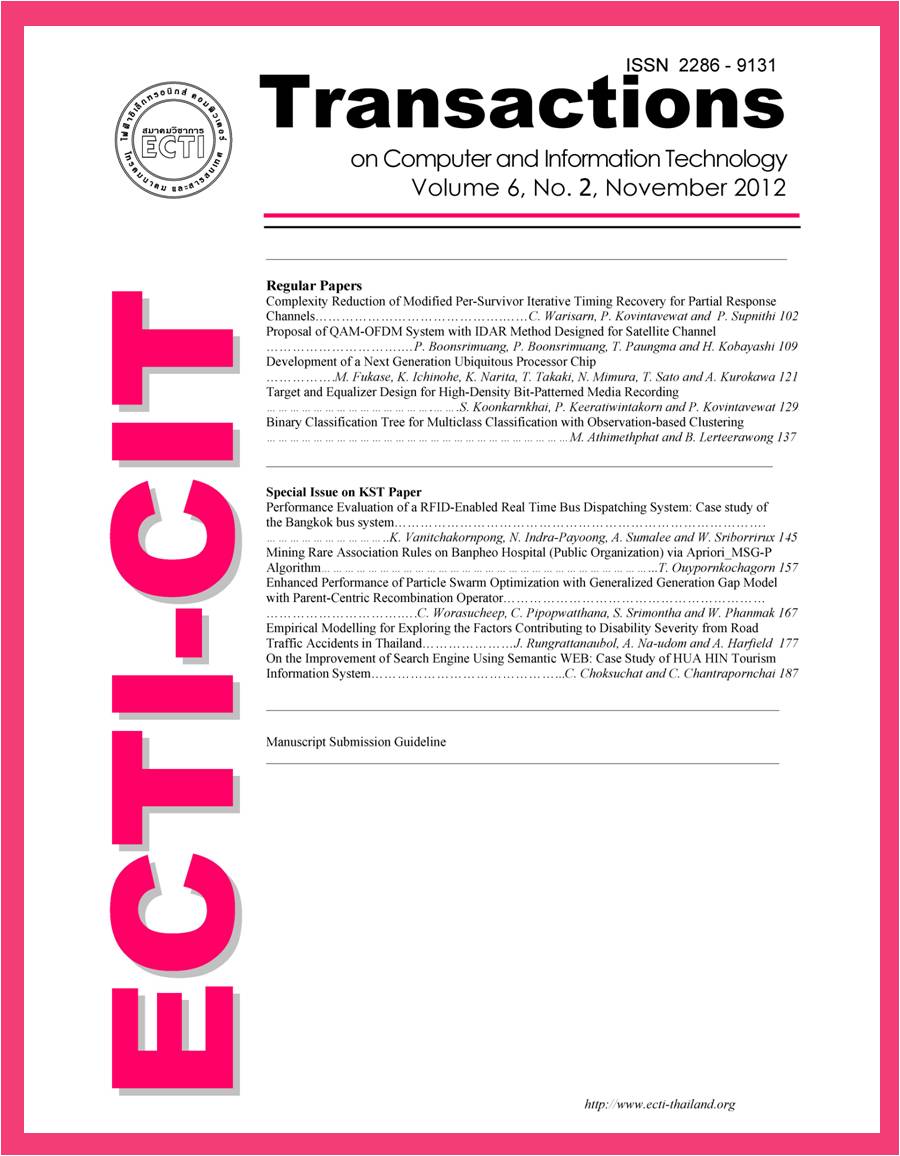On the improvement of search enging using semantic web: case study of Hua Hin tourism information system
Main Article Content
Abstract
This paper describes how to improve the search engine using the ontology for the semantic web technology, the case study on a prototype Hua Hin tourism web page. The methodology contains two parts. First, we describe a way to compute query complexity between the relational database (RDB) and web ontology language (OWL). We present the original RDB, convert to the OWL, and consider the query complexity with the searching time of the prototype system. A number of facts in the ontology, and a number of conjuncts in the conjunctive queries are considered as parameters. The goal is to improve the search engine by reducing the query complexity. Second, the SPARQL queries in web application are considered from the classification and realization of the reasoner. We study from the existing ontology, increasing OWL DL rules, and consider the expressivity. We then compare the searching time between top-down and bottom-up approaches. The advantages are to select the appropriate inference problems for query response through the web application. The prototype Hua Hin semantic web is used to present our methodology throughout the paper.


